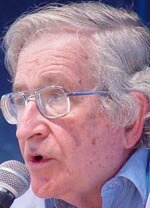Far from marking a revival by the center-left, as most media presented the results, [Israel’s 2013] election results signaled a further rightward shift in the center of political gravity in Israel. Hana Suwayd of the Democratic Front, the least outspoken of all the Palestinian legislators, observed: “I believe that what happened in Israeli politics is a kind of transformation: The extreme right became the mainstream, and the most extreme people are sitting at the center of Israeli politics.”
Haneen Zoabi
Adalah document covering Israeli election rules and party or individual disqualifications.
MK Haneen Zoabi called the decision “anti-democratic and illegitimate”, a form of political revenge that reflected the tyranny of the majority. “No one will determine for the Arab minority who represents it other than Arab citizens themselves,” she said. “I was elected to represent my people and, through their support, I have a legitimacy that the committee cannot take from me.”
Jamal Zahalka: “Our problem is not that we are terrorists but rather that we are democrats in an environment that does not believe in democracy… We are tired of apologising for demanding full equality for all Israeli citizens. We’re tired of sitting in the dock for being patriotic Palestinians.”
Haneen Zoabi: “Legally, they have no case. I never imagined myself to be in the middle of a war like this. I don’t think they will disqualify me. If so, and if Balad is disqualified, there will be no election – the Arabs will not vote.”
Awad Abdel Fattah: “Our [Palestinian Israelis’] traditional strength derived from the fact that we, as a community, survived the ethnic cleansing of 1948 [the Nakba]. We remained in our homeland, even as it was transformed into a Jewish state.”
The National Democratic Party has accused Israel’s security services of repeatedly harassing one of its leaders each time he leaves and enters Israel. The NDP, which represents Israel’s large minority of Arab Palestinian citizens and has three members sitting in the Israeli parliament, has suffered a campaign of persecution from the Israeli security services for many years. The latest incident occurred last month, when Awad Abdel Fattah, the NDP’s secretary-general, returned from a speaking tour in Europe.
Israel sees its Arab citizens as a security threat, and their leaders are increasingly under attack. While cooperation and political participation once seemed feasible, systematic discrimination has led to an untenable situation. Secretary general of The National Democratic Party Assembly (Tajamoa) writes on missed opportunities and grim predictions.
Haneen Zoabi in a highly biased interview with Israel’s Channel 2 TV. Her courage stands out, rising above the abrupt Israeli interviewing style: she keeps to her principled positions. (Hebrew with English subtitles.)
Ben White: I hope that this book can be a useful resource for university students and also for human rights and solidarity activists who seek a better grasp of Israel’s discriminatory policies towards Palestinian citizens. But I also would like this to be read by those people who have an interest in the issue or region as a whole, as well as those who have never had a chance to seriously unpack the implications of Israel’s definition as a “Jewish and democratic” state. There are insights here, I believe, that are crucial for an approach to the conflict that realistically appreciate what it will take to reach a settlement.
Despite the focus on my new book and writing, this was not about me; it is all about targeting a Palestinian citizen who is determined to use the legal means available to her in order to fight for her people – whether they are Israeli citizens, inside the Occupied Territories, or expelled refugees.
Palestinian Knesset member Haneen Zoabi is known for her fierce opposition to Zionism, to the concept of Israel as a Jewish state which she sees as inherently racist and unjust, and to the Israeli occupation. Instead, she envisions Arab-Jewish co-existence in Israel/Palestine, based on justice and equality, under a state for all its citizens. She also advocates replacing the Israeli occupation by a Palestinian state, and protecting the rights of Palestinian refugees.
Jonathan Cook and the IOA Editor sat with Haneen Zoabi at her Nazareth home in mid-December 2011 for an extended interview covering these issues and much more.
Haneen Zoabi talks about conditions of Palestinian citizens of Israel and the racism that is inherent to Israel as a Jewish State during the 3rd International Session of the Russell Tribunal on Palestine in Cape Town, November 2011.
Haneen Zoabi: “Israel will not stop being racist unless it pays the price of its racism and unless it loses the support of the international world. Israel keeps being racist because it enjoys also the support of the international community.”
Haneen Zoabi: “Just as Israelis are beginning to seriously consider a new social order, they must also consider a new diplomatic order in which Israel will pay a heavy price for its policy of oppression, occupation, and belligerence.”
Ms Zoabi, a vociferous critic of Israeli policies towards the Palestinians, was a passenger on the Mavi Marmara, attracting fury in Israel. She was branded a traitor by colleagues and stripped of some parliamentary privileges… The Knesset’s ethics committee voted to bar Ms Zoabi from parliamentary debates until the current session ends next month, declaring that her actions had “harmed national security and were inconsistent with the legitimate conduct of a lawmaker”.
There is no other meaning to a “Jewish state” except the recognition of the legitimacy of granting privileges to Jews in Israel at the expense of Palestinian citizens, annulling the legitimacy of our struggle for real democracy.
MK Hanin Zuabi (Balad ) canceled a scheduled lecture at the University of Haifa Sunday after the university announced it was banning on-campus political activity and called in security forces. The lecture, which would have coincided with Nakba Day, was arranged and approved by the university a month ago. Zuabi, who was invited by the Balad student association, had planned to discuss anti-Arab discrimination and other issues.
In the wake of her participation in last year’s Gaza flotilla, Zuabi was stripped of three key privileges as an MK; Zuabi in turn petitioned the High Court to get her privileges reinstated. The court gave the Knesset 30 days to submit an explanation.
RELATED
Netanyahu plans meet to discuss response to upcoming Gaza flotilla
Some 1,500 Israeli Arabs protested in Lod (Lydda) on Tuesday against government policies which affect Israel’s Arab sector, launching the events of Land Day, to be marked on Wednesday. The protesters were demonstrating against the government demolition of the houses of the Abu Eid family, which left some 50 family members, 30 of them children, without a home.























